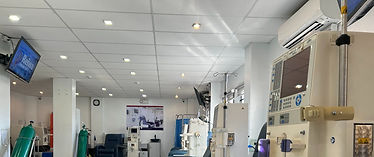
SERVICES
Welcome to our Dialysis Clinic
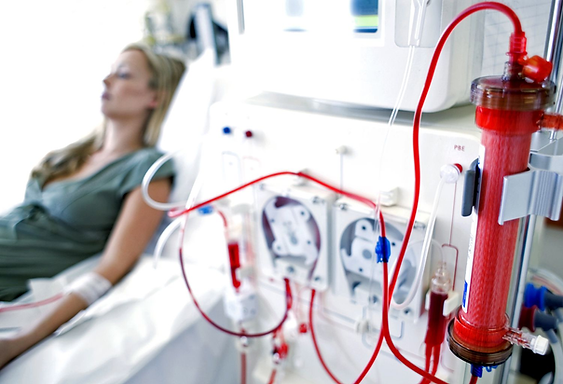
At Reiwa Dialysis Center Inc., we are committed to providing comprehensive kidney care in a safe, comfortable, and patient-focused environment. Our services include high-quality in-center hemodialysis and thorough vascular access care. We offer regular laboratory testing and nutritional counseling to help patients maintain optimal health. Our dedicated team also provides patient education, emotional support, and assistance with treatment planning, ensuring that each individual receives care tailored to their needs. With flexible scheduling, a clean and modern facility, and a compassionate staff, we aim to make every treatment session a step toward better health and an improved quality of life.
Convenience & Comfort
What to expect to our Center
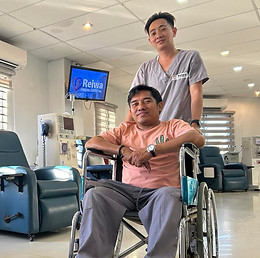
At our dialysis center, patients receive personalized care in a comfortable, environment with advanced equipment. We offer flexible treatment schedules and education on dialysis and health management. Our team ensures safety, transparency in billing, and assistance, while fostering community through support groups and family involvement
Entertainment
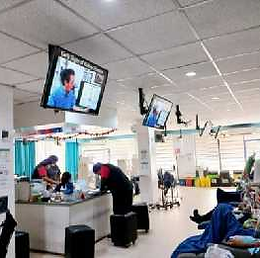
We provide televisions for you to enjoy your favorite shows and entertainment while undergoing dialysis treatment, ensuring a more relaxing experience. We offer free Wi-Fi, so you and your relatives can stay connect and entertained during your dialysis treatment.
Your well - being is our priority
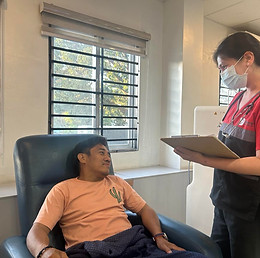
While dialysis may come with its challenges, at Reiwa Dialysis Center, we prioritize your comfort and well-being, ensuring that every visit feels as welcoming and comforting as home. Our dedicated team is here to provide compassionate care, making the process as smooth and supportive as possible.
Culture - Birthday Celebrant
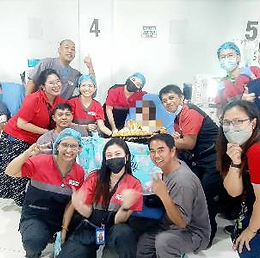
We celebrate our patients` special day by giving then a delicious cake to enjoy on their birthday, making their experience at our center a little sweeter.
We honor our patients by attending their funeral to offer our heartfelt condolences and support their families during this challenging time.
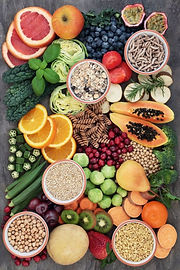
Diet and Nutrition
Diet and nutrition play a crucial role in the health and well-being of dialysis patients. Since dialysis can`t fully replace kidney function, managing what you eat is essential to help control fluid balance, maintain good nutrition, and prevent complications. Here are the key dietary considerations
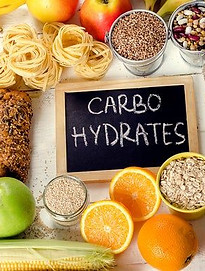
Protein
Dialysis patients need to consume an adequate amount of protein to maintain muscle mass and overall health. However, the amount varies based on the type of dialysis and the patient`s condition. Good sources of protein include lean meats, poultry, fish, eggs, and plant-based option like beans and lentils.
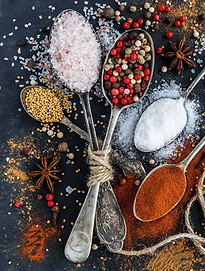
Sodium ( Salt)
Reducing soduim intake is essential for controlling blood pressure and preventing fluid retention. Patients should avoid processed foods, canned goods, fast food, and salty snacks, fresh unprocessed foods are the best choice.
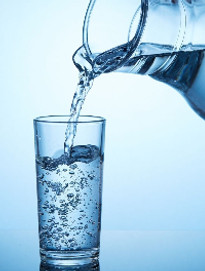
Fluid Intake
Fluid intake needs to be carefully monitored. Too much fluid can lead to swelling, high blood pressure, and strain on the heart, while too little fluid can lead to dehydration. patients may need to limid how much they drink each day, including soups, fruits, and beverages.
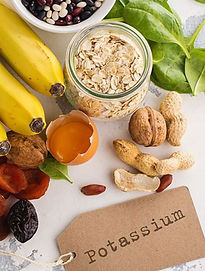.jpg)
Potassium
Potassium levels need to be managed carefully, as high or low potassium can cause serious heart problems. Foods high in potassium ( like bananas, oranges, potatoes, and tomatoes ) may need to be limited or avoided, depending on the patient`s blood levels.

Calcium
Patients with kidney disease need to manage calcium intake to avoid high level in the blood whic can cause heart and bone problems. Calcium-rich foods like dairy may need to be limitedm and supplements might be prescibed if needed.
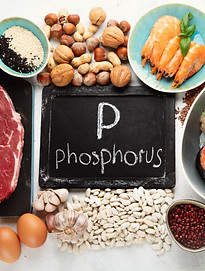
Phosphorus
High phosphorus levels can lead to bone problems, so dialysis patients are advised to limit foods high in phosphorus, such as diary products, nuts, seed, beans, and colas. Phosphate binders may also be prescribed to help control phosphorus levels

Carbohydrates
Dialysis patients should aim for a balanced intake of carbohydrates, particularly those from whole grains and fiber-rich foods. This helps maintain energy levels and manage blood sugar, especially if the patient has diabetes
Be healthy, and kind to your kidneys.
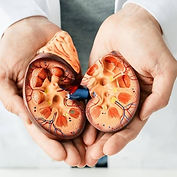
Kidney and Dialysis
Awareness
What is Chronic Kidney Disease ( CKD )
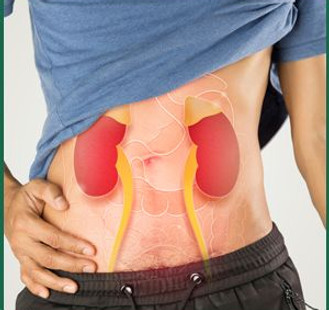
Chronic Kidney Disease (CKD) is a long-term condition where the kidneys gradually lose their ability to filter waste and excess fluids from the blood. It develops slowly and is often caused by diabetes, high blood pressure, or kidney infections. Early stages may show no symptoms, but as the disease progresses, patients may experience fatigue, swelling, high blood pressure, nausea, and loss of appetite. CKD is classified into five stages based on kidney function, with Stage 5 requiring dialysis or a kidney transplant. While CKD cannot be cured, early detection, proper medication, a healthy diet, and lifestyle changes can help slow its progression and improve quality of life.
STAGE 1
Normal function (GFR ≥ 90
mL/min) with mild kidney damage, no symptoms. Manage underlying
conditions to prevent progression. Early detection is key.
STAGE 4
Severe damage (GFR 15-29 mL/min), symptoms worsen with nausea,
swelling, and bone pain. Patients should prepare for dialysis or transplant while
managing complications.
STAGE 2
Mild decrease in function (GFR 60-89 mL/min), possible protein in urine,
usually no symptoms. Lifestyle changes and regular check-ups recommended to protect kidney health.
STAGE 5
End stage renal disease (ESRD)
Kidney failure (GFR < 15 mL/min), severe symptoms like fatigue, breathlessness, and fluid overload. Dialysis or kidney transplant is necessary to sustain life.
STAGE 3
Moderate damage
(GFR 30-59 mL/min) with symptoms like fatigue, swelling, and high blood pressure. Medications, diet adjustments, and regular monitoring are needed.

Kidney and Dialysis
Prevention
CKD Prevention Tips
Healthy Lifestyle
-
Eat a balanced diet
-
( low salt, low fat, and low sugar )
-
Stay Hydrated
-
( 6 - 8 glasses of water daily )
-
Maintain a healthy weight
Avoid Harmful Habits
-
Quit smoking
-
Limit alcohol intake
-
Avoid excessive us of painkillers
-
( NASAIDs like ibuprofen )
Control Health Conditions
-
Manage blood pressure
-
( target: ≤130 / 80 mmHg)
-
Keep blood sugar levels under control if diabetic
-
Regularly check cholesterol levels
Regular Check - ups
Annual kidney function test
( especially for those with diabetes, hypertension, or family history of kidney disease )

Kidney and Dialysis
Treatment
CKD 5 Treatment
Hemodialysis
Peritonial Dialysis
Kidney Transplant

-
Filters blood using a machine
-
Done 3 - 4 times a week i a dialysis center or at home
-
Requires surgery to create a vascular access ( AV fistula or graft )
-
Common side effects: Fatigue, low blood pressure, muscle cramps

-
Uses the lining of the abdomen ( peritoneum ) to filter blood
-
Can be done at home daily ( CAPD or APD )
-
Requires a catheter placed in the abdomen
-
Common side effects: Infection ( Peritonitis ) , bloating

-
Best option for long - term survival
-
A healthy kidney is placed from a living deceased donor
-
Requires lifelong medication to prevent rejection
